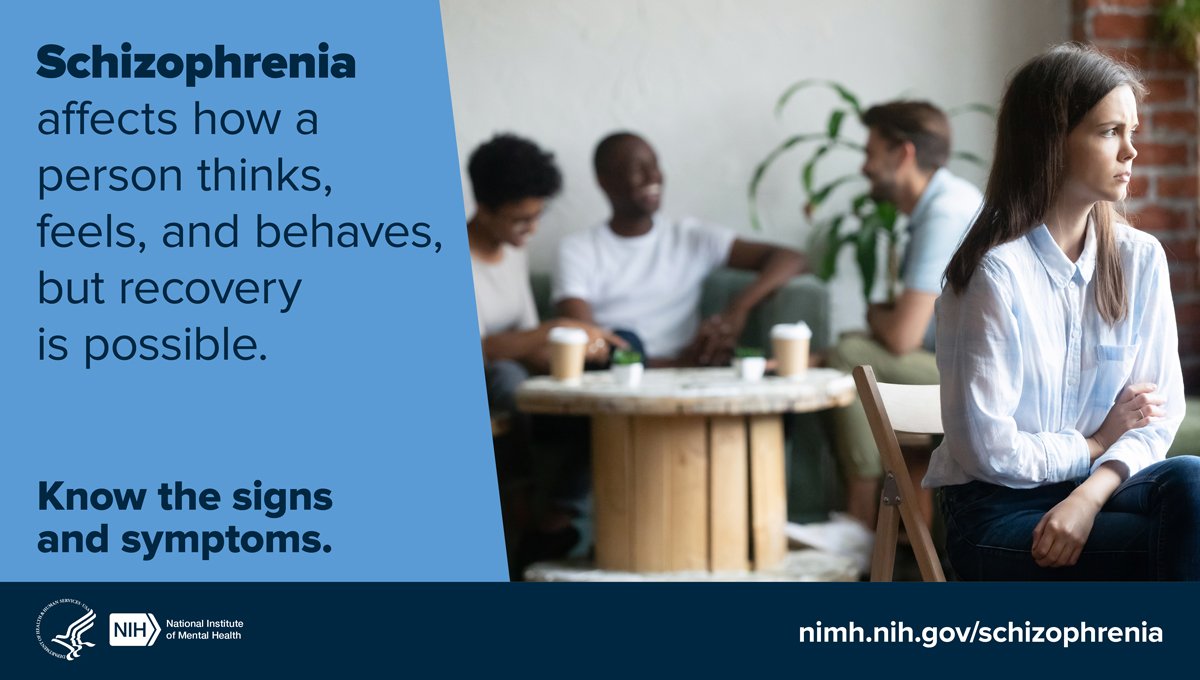Schizophrenia early signs family education and medication adherence
- Moe | Scarlet Plus

- 25 minutes ago
- 6 min read
Schizophrenia is a serious mental health condition that changes how a person thinks feels and understands what is real. It can feel confusing and even frightening for the person who has it and for the people who love them. The good news is that with early help strong family support and steady use of medication many people living with Schizophrenia can manage symptoms and build a meaningful life. (National Institute of Mental Health)
At Caritas Behavioral Health Services in Columbia Maryland we provide in person care and secure telehealth visits across Maryland to help you or your loved one understand symptoms create a treatment plan and stay supported over time. (caritasbhs.com)

What is Schizophrenia
Schizophrenia is a long lasting brain disorder that affects how a person thinks feels and behaves. Many experts describe it as a type of psychosis which means the brain has trouble telling the difference between what is real and what is not. (National Institute of Mental Health)
People living with Schizophrenia may
Hear voices that others do not hear
See or sense things that others do not notice
Hold strong beliefs that are not true such as believing someone is watching them or trying to harm them
Have jumbled or hard to follow speech
Seem flat in mood or show little facial expression
Pull away from family and friends or lose interest in daily life
Symptoms often begin in late teen years or early adult life. In many cases they build slowly over months or years before a clear psychotic episode appears. (National Institute of Mental Health)
Early signs of Schizophrenia
Early signs can be easy to miss because they may look like common stress or teenage changes. Still noticing patterns early can help families seek care before a crisis.
Changes in thoughts and perception
Trouble focusing in school work or daily tasks
Feeling that others are talking about them or watching them
Growing mistrust or strong suspicion of people
Saying things that do not fully make sense or jumping quickly from one idea to another
Talking about seeing or hearing things that others do not notice
Changes in mood and daily life
Sleeping much more or much less than usual
Big change in grades work performance or self care
Losing interest in friends hobbies and social time
Strong mood swings such as sudden anger fear or sadness
Decline in personal hygiene like not bathing or changing clothes
These signs do not always mean a person has Schizophrenia. They can also come from depression substance use trauma or other medical problems. But when several signs appear together and last for weeks or months it is important to get a mental health evaluation. Early treatment can lower the chance of a severe first psychotic episode and may improve long term outcomes.
If you notice these changes in yourself or someone you love in Columbia or nearby areas you can schedule an evaluation with Caritas Behavioral Health Services in person or by telehealth anywhere in Maryland.
Why family education matters in Schizophrenia
Schizophrenia affects the whole family not just the person with the diagnosis. Confusion fear and stress are common. Family education programs give relatives clear information skills and support so they can be part of recovery instead of feeling helpless.
Research supported by the Substance Abuse and Mental Health Services Administration also called SAMHSA shows that family education and family psychoeducation can
Lower the risk of relapse and hospital stays
Improve how well people stick with treatment plans
Reduce family stress and burnout
Improve communication and problem solving skills at home (SAMHSA)
What families can learn
Family education programs often cover topics such as
Basics of Schizophrenia and how symptoms show up in daily life
Early warning signs that symptoms are getting worse
How medication and therapy work together
Ways to respond when a loved one hears voices or has strong fixed beliefs
How to set kind but firm limits and keep everyone as safe as possible
Community and online resources for support
Learning that Schizophrenia is a medical brain disorder and not a personal failure can ease blame and shame on all sides. Families can move from asking why did this happen to us to asking how can we face this together.
If you are caring for someone with Schizophrenia in Maryland the team at Caritas Behavioral Health Services can explain the condition in simple terms answer your questions and guide you toward helpful resources for ongoing family support. (caritasbhs.com)
Medication and Schizophrenia treatment
Most people with Schizophrenia benefit from antipsychotic medications. These medicines help reduce hallucinations delusions and confused thinking. Many people also need therapy and skills training plus social and work support. (National Institute of Mental Health)
Common parts of a treatment plan may include
Antipsychotic medication taken every day
Regular follow up visits for medication management
Individual therapy to build coping skills and insight
Family education or family therapy
Help with school work or job skills
At Caritas Behavioral Health Services our clinicians create treatment plans tailored to each person. We offer structured medication management visits in Columbia and medication follow up by secure telehealth across Maryland for people who qualify. (caritasbhs.com)
Why medication adherence is so important
Schizophrenia is usually a long term condition. For many people symptoms return when medication is stopped or taken only once in a while. Sudden stopping can raise the risk of relapse hospitalization and crisis. (National Institute of Mental Health)
Staying on medication as prescribed can
Lower the chance of severe psychotic episodes
Reduce hallucinations and delusions
Help protect thinking and memory over time
Support better work school and relationship functioning
No one likes side effects and it is normal to have mixed feelings about medication. But any change in dose or type of medicine should always be made with the prescriber. Do not stop or change your medication on your own. If side effects are a problem your provider can often adjust the dose switch medicines or add strategies to ease discomfort. (National Institute of Mental Health)
Common barriers to taking medication
People living with Schizophrenia may struggle with medication for many reasons such as
Not feeling sick once symptoms improve and not seeing the need for medicine
Worry about side effects like weight gain sleep problems or restlessness
Forgetting doses because of busy schedules or memory problems
Feeling stigma or pressure from others who do not understand mental illness
Trouble getting to appointments or picking up prescriptions
Family members can play a huge role in solving these problems with compassion not pressure.
How families can support medication adherence
Here are some practical ideas that build on guidance from SAMHSA and other mental health experts.
Make a simple daily routine such as taking medication with breakfast or before brushing teeth at night
Use a weekly pillbox a chart on the fridge or phone reminders
Go to appointments together when possible and ask questions as a team
Keep a small notebook of side effects sleep appetite and mood changes to share with the provider
Talk openly and respectfully about fears or doubts about medication
Focus on goals that matter to your loved one such as finishing school working or living more independently and connect medication to those goals
Encourage healthy habits like regular sleep a balanced diet and avoiding alcohol or drugs since these can interact with medication and worsen symptoms
If disagreements come up it helps to stay calm and validate feelings. You might say I hear that you feel the medicine is not needed anymore. Can we talk with your provider together before making changes.
Telehealth visits with Caritas Behavioral Health Services can make it easier to keep follow up appointments especially if transportation is hard or you live elsewhere in Maryland.
When to seek urgent help
Get urgent help right away if
Someone talks about wanting to die or to harm themselves or others
Voices are telling the person to hurt themselves or someone else
The person cannot care for basic needs like eating drinking or staying safe
In the United States you can call or text 988 to reach the Suicide and Crisis Lifeline for free 24 hour support from trained counselors.
For life threatening emergencies call 911 or go to the nearest emergency room.
How Caritas Behavioral Health Services supports people with Schizophrenia
Caritas Behavioral Health Services in Columbia Maryland offers compassionate evidence based care for adults who live with Schizophrenia and other mental health conditions. We provide
In person psychiatric evaluations and ongoing treatment in Columbia and nearby areas
Secure telehealth evaluations and follow up for people across Maryland when appropriate
Medication management visits to monitor benefits and side effects and adjust treatment when needed
Supportive therapy and referrals for family education and community resources
If you or a loved one may be experiencing early signs of Schizophrenia or if you already have a diagnosis but need more support you do not have to face it alone.
You can learn more about treatment options on the Caritas Behavioral Health Services Schizophrenia page and request an appointment to get started on a personalized plan for care.
Moving forward with hope
Schizophrenia is a complex illness but it is not the end of your story. With early attention to warning signs strong family education and steady medication adherence many people can reduce symptoms prevent relapses and move toward their own goals.
If you live in Columbia Maryland or anywhere in the state and need thoughtful expert support the team at Caritas Behavioral Health Services is here to walk beside you every step of the way.
.webp)





